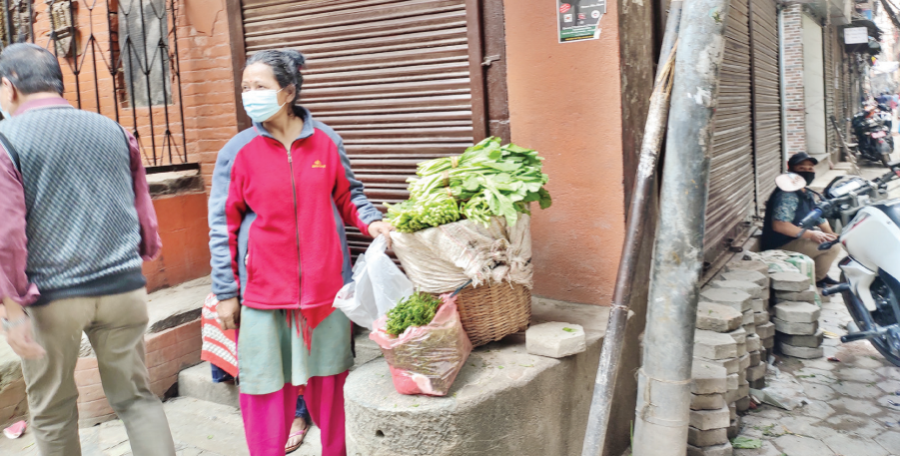Editorial
A view from street level
It is prudent to support street vendors financially and help them evolve as formal entrepreneurs.
Street vendors are a ubiquitous sight in major cities in South Asia and much of the third world. They serve not only as a cog in the wheel of the informal economy, but also as convenient agents for the purchase of daily vegetables, fruits and other consumables. And yet, they are the ones who face the ire of authorities all the time as if they were the only obstacles to the gentrification of cities. Authorities, particularly in Kathmandu Valley, are harsh on pavement hawkers, most of whom come from economically poor regions, often driving them to unemployment and dislocation.
The coronavirus pandemic has been a difficult time for street vendors as they regularly become targets of extreme policing from security personnel and municipality officials as if they are the most potent agents for coronavirus transmission. On the contrary, their mobile shops that operate in the open air are comparatively safer than brick-and-mortar shops within enclosed spaces. But try explaining this to the authorities. Logic and empathy evades the minds of these people who are constantly on the lookout for punching bags on whom they can flex their bureaucratic—and in times physical—muscles.
Officials, especially low-level staff of the municipality or the police, need some work to show their seniors. And they find it convenient to discipline, thrash and detain footpath sellers simply because the latter lack the social agency to resist. The vendors get little to no time to just run away with whatever goods they can pack up before the authorities catch them and confiscate or destroy their merchandise. This cycle of street vendors setting up shop and authorities chasing them away recurs throughout the year. But when the coronavirus pandemic is ravaging people’s means of survival, it is doubly punishing for the vendors, most of whom have to live from day to day. This happened during the lockdown last year, when authorities picked up street vegetable vendors even as brick-and-mortar shops continued to operate. It is no different this year.
It is not only vegetable shop owners, though, who are harassed by authorities. Vendors of all hues, including persons with physical or visual disabilities who set up little shops or entertainment joints on street corners, are repeatedly harassed and deprived of their means to economic gain and survival. Moreover, some residential areas have put up notices asking street vendors not to enter their localities. This explains how society perpetuates the dehumanisation of pavement hawkers who, while belonging to the lower rungs of the economic ladder, depend on small-scale entrepreneurship for survival. In any case, it is not street vendors only who need to continue operating their shops. It is the common people who need to make fresh purchases from these sellers. Not everyone has the wherewithal to visit department stores or brick-and-mortar shops, or shop online.
There is no denying that the setting up of shops by street vendors at major junctions often impedes uninterrupted movement of vehicles and pedestrians. But the solution lies not in banishing them altogether, but managing and transitioning them to the formal sector. If the government and municipal authorities cannot guarantee minimum survival allowances for the poor, then they should facilitate uninterrupted operation of those shops while maintaining optimum safety precautions. Pandemic or no pandemic, it is prudent to support street vendors financially and help them evolve as formal entrepreneurs rather than rob them of their means of livelihood.




 22.99°C Kathmandu
22.99°C Kathmandu














